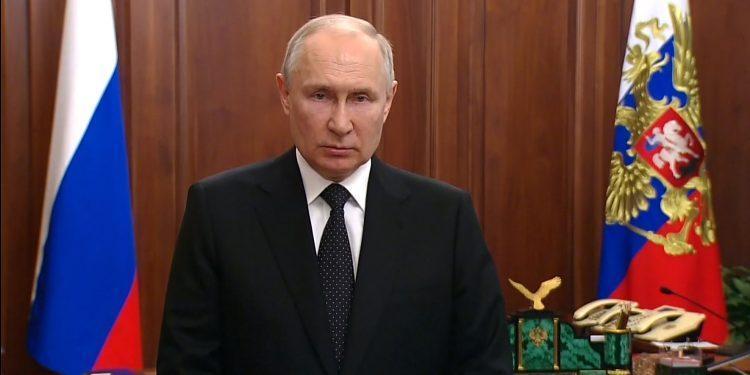Yevgeny Prigozhin, head of the Wagner Group, announced that his fighters had crossed the border from Ukraine into Russia and entered the city of Rostov-on-Don. Prigozhin stated that his men would eliminate anyone who obstructed their path. In response, the local governor urged citizens to remain calm and stay indoors.
Prigozhin claimed that his forces had shot down a Russian military helicopter that had allegedly fired upon a civilian convoy. However, the location of the incident was not specified, and the assertion could not be immediately verified.
The Wagner Group is a private army of mercenaries that has been fighting alongside the regular Russian army in Ukraine. Recent months have seen growing tension between Prigozhin and Russia’s military leadership regarding the conduct of the war.
On Friday, Prigozhin accused the military of launching a fatal missile strike on his troops and vowed to retaliate, although he provided no evidence to support his claim. Russian authorities denied the strike and demanded that Prigozhin cease his “illegal actions.”
Prigozhin expressed his determination to stop the “evil” within Russia’s military leadership and promised to march for justice. He warned that anyone who resisted would be considered a threat and eliminated, including at checkpoints and aviation facilities. Prigozhin emphasized that the actions of his group did not interfere with the regular troops or the functioning of the government, police, or Russian Guard.
Russia’s President Vladimir Putin has been receiving continuous updates on the situation, according to his spokesperson. Security measures were heightened in Moscow, particularly at key locations such as government buildings and transportation facilities. The governor of Russia’s Lipetsk region advised residents not to travel south and announced tightened security measures to protect critical infrastructure facilities.
The Ukrainian Ministry of Defense stated that it was monitoring the situation. The White House also confirmed that it was monitoring the events and would consult with its allies.
Senior Russian military figures responded to Prigozhin’s actions. General Sergei Surovikin, deputy head of Russian forces in Ukraine, called on Prigozhin to halt his convoys and return them to their bases, urging unity during a challenging time for the country. Lt. Gen. Vladimir Alekseyev described Prigozhin’s actions as a betrayal of the country and the president.
Russian state media reported that the Federal Security Service (FSB) had initiated a criminal case against Prigozhin, accusing him of inciting armed rebellion and attempting to instigate an armed civil conflict within Russia. The FSB also called on Wagner fighters to disregard Prigozhin’s orders and take steps to apprehend him.
Russia’s defense ministry stated that the reports of Russian strikes on Wagner camps, spread by Prigozhin on social media, were untrue and constituted an information provocation.
Previously, in a video message in May, Prigozhin publicly criticized Russian Defense Minister Sergei Shoigu and Chief of the General Staff Valery Gerasimov for not providing adequate ammunition to his troops. He claimed that the war in Ukraine had been initiated to facilitate Shoigu’s promotion to the rank of Marshal.
President Putin addressed the nation and condemned the situation as a betrayal and a knife in the back of the Russian people. He vowed to punish those responsible for the armed mutiny and warned of inevitable consequences for those dividing Russian society. The president also declared a counter-terrorism regime in Moscow and several other regions.



